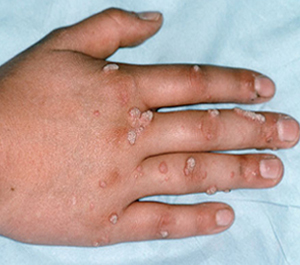
1. What are warts?
Warts are benign growths in skin that are caused by human papillomavirus (HPV) infection. Wart viruses are contagious. Warts are non cancerous.
2. Who gets warts?
Though any one can get warts, they are common in undernourished children, people with decreased immunity and diabetes mellitus. They are also seen in patients who are on long term steroids or immunotherapy or anti cancer drugs. Warts are more likely to develop on broken skin, such as picked hand nails or areas nicked by shaving, because the virus is able to enter the skin through scratches or cuts.
3. How do dermatologists treat warts?
Some warts will go away without treatment but may take months, or even years, to disappear. In adults, warts may not disappear as easily or as quickly as they do in children. There are many treatments available for warts like cryotherapy, radio frequency ablation and carbon dioxide lasers. The treatment used depends on the patient's age, the type of wart and other comorbid condition. Cryotherapy (freezing) is the most common treatment. It is painless procedure, no local anesthesia is required, may require multiple sitting and there is no scarring. Bleomycin and immunotherapy are also used for resistant warts.


